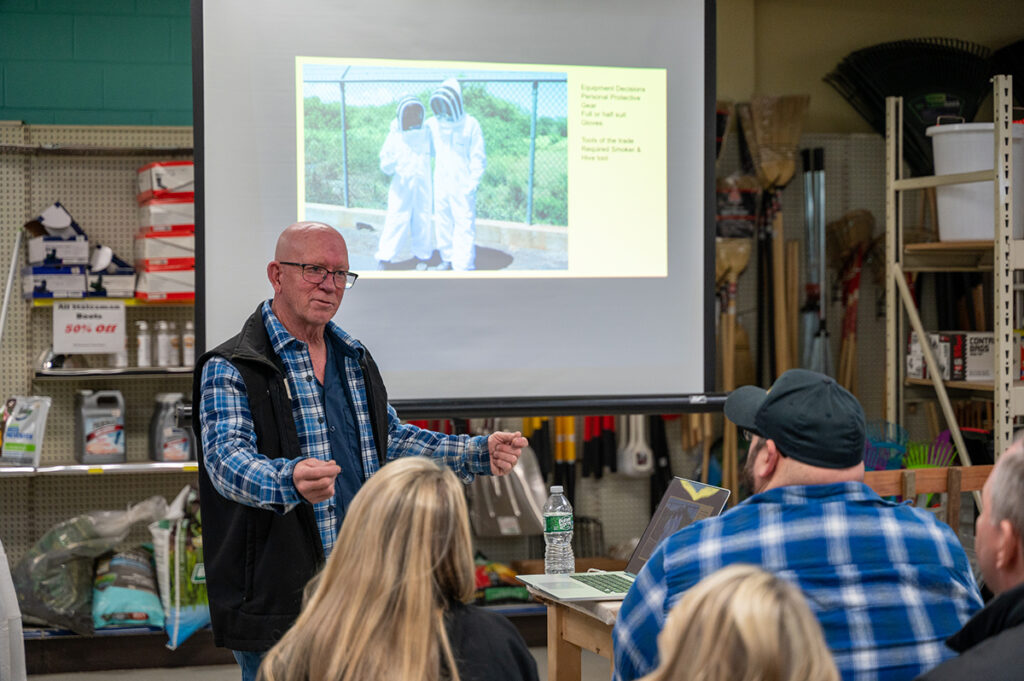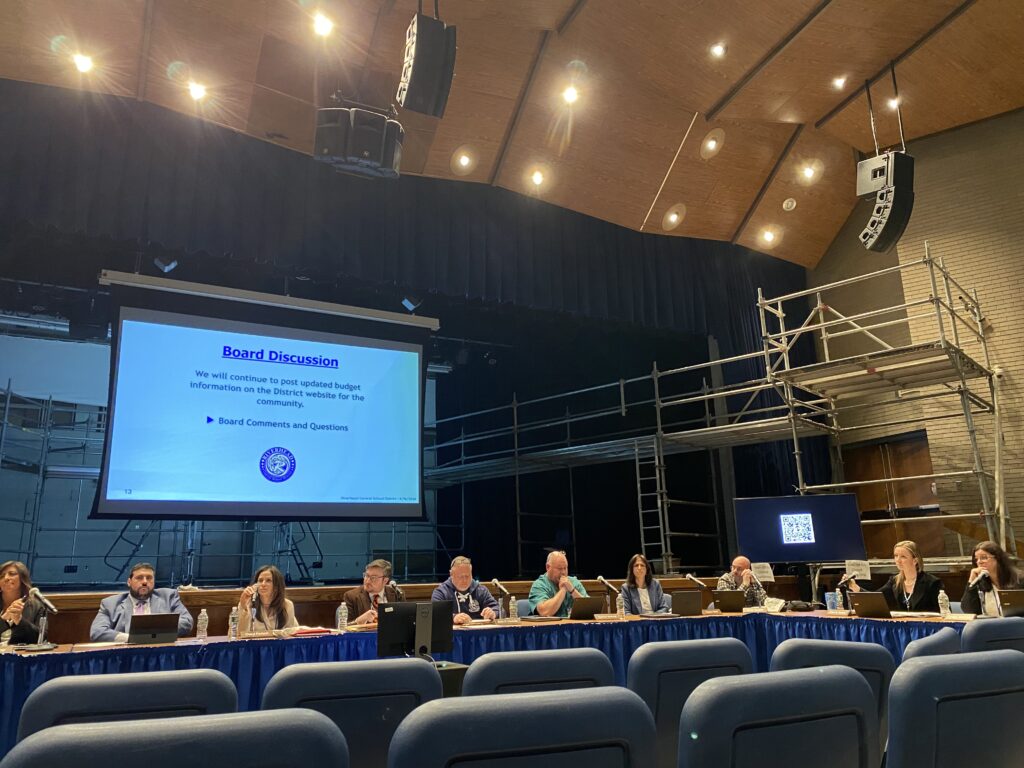Behind the East End’s beekeeping boom

Christopher Kelly is taking the sting out of beekeeping.
Mr. Kelly, a master beekeeper, held an introductory beekeeping seminar at Riverhead’s Talmage Farm Agway last Thursday for about 20 prospective local beekeepers. The free, one-hour course covers best practices for setting up a hive, maintaining it as well as key concerns to monitor, such as pests.
Mr. Kelly, who owns North Fork Promise Land Apiaries in Mattituck, has been teaching beekeeping for more than 30 years, and said awareness of the value of bees to the environment has been growing on the East End.
“Years back, it used to be ‘you have bees, stay away from me,’” he said of the growing local demand for his expertise. “But about 15 years ago, people realized we need to pay attention and care about bees. There’s been a greater awareness of where our food supplies are coming from.”
In addition to the free introductory class, Mr. Kelly offers a paid six-session course that goes into much greater depth. He is currently running five of these classes, four open to the public at Peconic Bay Vineyards and one private series. The six-session course costs $195, and more will be scheduled the end of this month.

Bees are vital to a region like Suffolk County, the top crop-selling county in New York State, according to the U.S. Department of Agriculture’s 2017 census, the most recent data available.
Beekeeping may be Mr. Kelly’s passion, but he is also concerned about the state of wild pollinators due to increased development in the area and the proliferation of fertilized lawns. While honey bees are well-known, they comprise only a small segment of the overall bee population. Pollinators such as mason bees and bumblebees are native to the region, as opposed to honey bees, which Mr. Kelly imports from New England.
Honey bees are somewhat akin to hired farm hands to lighten the workload of local birds, bats, bees, and other insects, which pollinate fruits, vegetables, nuts and flowers at farms and gardens both large and small.
Mr. Kelly encouraged attendees at his lecture to visit his website and order a “nuc” — a package of honeycombs, a mated queen bee and 10,000 adult and larva-stage honey bees – which he ships in from Massachusetts.
Among the attendees was Christina Orlando of Medford.
“I feel bees are important for the environment and we have a pretty big garden area,” she said. “I have 20 garden beds and we’re looking to expand even more. Bees are what keep everything going for that — so I thought it would be a good thing to add.”
Although a significant portion of honey bee colonies die each year, especially during winter when food is scarce, the number of colonies nationwide is on the rise.
“Bees over winter have to be very conservative regarding how much food they eat,” Mr. Kelly said. “The more efficient these hives are in terms of storing honey and using very little per day, the more likely they’ll make it through into the spring.”
The USDA’s Economic Research Service reports that the average number of honey bee colonies from 2000 through 2009 totaled 2.49 million. From 2010 through 2020, that figure increased to 2.7 million.
Beekeepers are constantly seeking ways to bolster colony survival and fight off pests, including the varroa destructor, a parasitic mite that invades hives. Mr. Kelly selected bees from his hives to create what he calls his “Long Island Survivor Stock.”
“I wanted to see what bees survived the best in our conditions locally,” he explained. “A lot of people, when they select for queen breeding, select based on honey projection. I select based on how they survive our winters.”
Mr. Kelly’s Long Island Survivor Stock bees are considered so valuable within the local beekeeping community, a portion of his colony was stolen in 2021. The crime remains unsolved.
Believe it or not, despite the threat of stings, beekeepers find their passion relaxing.
Such is the case of Bruce Talmage, owner of Talmage Farm Agway in Riverhead.
“Raising bees and watching them bring pollen in, seeing how much honey they get, being a little hands on, going in and inspecting the hive, finding the queen, looking for the eggs — there is an enjoyment to it,” he said.
Regardless of whether it’s for their own farms or their own pleasure, Mr. Kelly is thrilled more people are taking up beekeeping and tuning into their environment.
“Long Island is the most amazing place to live,” he said. “I think what we’re seeing more is, our communities are engaged — and I love it. They’re engaged for a multitude of reasons: it might be a climate change concern, it might be a food security concern, it might be that they want to take up a new passion. But I love that people are engaged, and that engagement brings life.”








